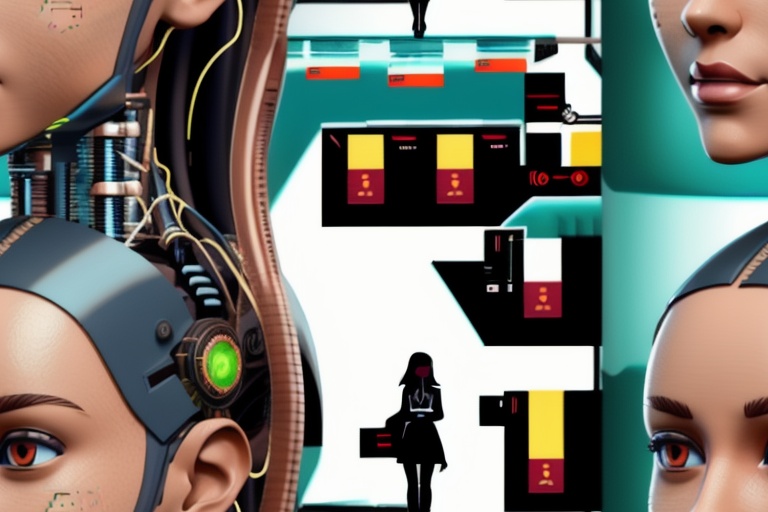Artificial intelligence (AI) and machine learning (ML) stand on the shoulders of numerous technological advancements, with one of the most pivotal being the growth of Graphics Processing Unit (GPU) technology. In recent years, the level of improvement in this domain has empowered AI applications to work through massive quantities of data and hone complex models with unparalleled speed and accuracy. This progress has had a notable impact across a myriad of industries, including but not limited to, business automation, healthcare diagnostics, and many others.
Artificial intelligence (AI) and machine learning (ML) stand on the shoulders of numerous technological advancements, with one of the most pivotal being the growth of Graphics Processing Unit (GPU) technology. In recent years, the level of improvement in this domain has empowered AI applications to work through massive quantities of data and hone complex models with unparalleled speed and accuracy. This progress has had a notable impact across a myriad of industries, including but not limited to, business automation, healthcare diagnostics, and many others.
Breakthroughs in GPU Technology and AI
One can observe that the advancements in GPU technology have not only been advantageous for AI researchers and developers but have also had a substantial effect on businesses and end consumers. These groups have gained the ability to exploit AI capabilities for more refined efficiency in operations and decision-making processes. These benefits can be seen in real-world applications such as real-time language translation, facial recognition systems, and predictive analytics.
As GPU hardware continues to advance, researchers are provided with the tools necessary to push the boundaries of AI. The parallel processing capabilities of modern GPUs have been critical for training deep learning models, which are the central algorithms driving AI's most significant breakthroughs.
The Future of AI: What's Next?
Peering into the future, one can anticipate continuous advancements in AI technology, propelled by relentless improvements in both GPU hardware and AI algorithms. This progression is set to unlock the development of even more influential and nuanced AI applications, further expanding the realm of possibilities for what AI can achieve.
It is essential to highlight that the trajectory of AI technology is not merely a linear path to more powerful tools; it carries with it the need for a thoughtful and ethical approach to its implementation. AI should not be viewed as a standalone panacea but as an instrument that functions in concert with human intelligence. To harness the full potential of AI, we must address critical issues including bias in algorithmic decision-making, the privacy of personal data, and the need for transparency in AI systems.
Responsible AI and Human Centricity
As AI technologies become progressively ingrained in our daily lives, society must focus on ensuring that these systems are used ethically and responsibly. This means being vigilant about the data AI systems are trained on so that they do not perpetuate existing biases or injustices. Moreover, there must be a clear understanding of how personal data is utilized and safeguarded within AI-driven platforms.
AI, while extraordinary in its capabilities, should ultimately serve to augment human abilities and address complex challenges in ways that are both innovative and mindful of societal values. By fostering a collaborative relationship between AI advancements and ethical oversight, the future can hold transformative applications of artificial intelligence that contribute positively to industries and enhance the quality of life for individuals around the world.
Conclusion: Embracing the AI Revolution
The AI revolution is upon us, and with it comes a future full of exciting potential. The relentless progression in GPU capabilities and algorithmic innovation promises to catalyze the emergence of more sophisticated and effective AI applications. As we embrace these changes and navigate the new landscapes they create, we must maintain a steadfast commitment to ethical practices and human-centered design principles. By doing so, we can ensure that AI will not only revolutionize industries but also enrich and improve our collective human experience.
Information for this article was gathered from the following source.




